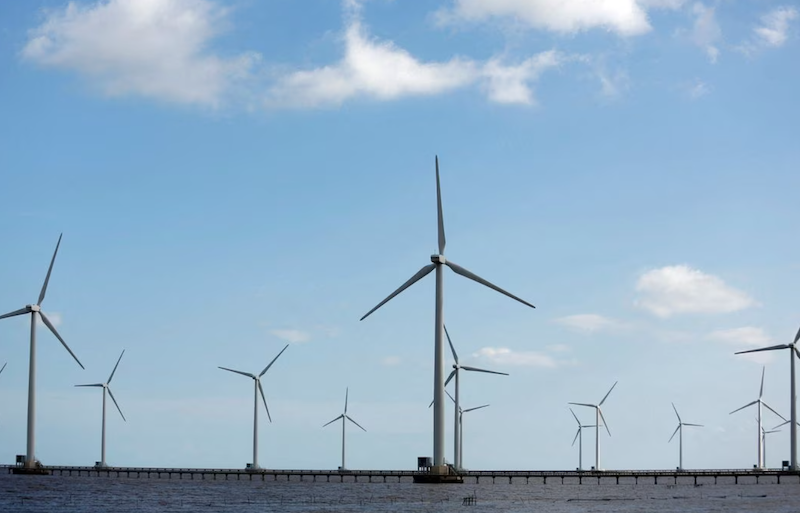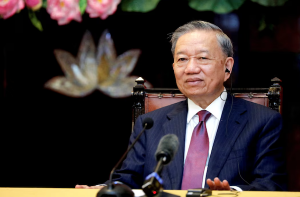Vietnam has unveiled a $134.7 billion plan to shift away from coal and boost its wind and gas energy supplies.
Known as PDP8, Hanoi’s plan aims to ensure energy security for the Southeast Asian country while it begins the transition to becoming carbon-neutral by mid-century.
The plan needs nearly $135bn of funding for new power plants and grids, the government estimated, with part of the money expected to come from foreign investors.
Also on AF: Hang Seng Slips on China Forecast, Nikkei Boosted by Weak Yen
In December, the Group of Seven (G7) nations and other wealthier countries pledged $15.5bn in initial funds to support Vietnam’s transition away from coal.
Amid internal squabbles and work on complex reforms, the plan had been delayed for more than two years. It has seen a dozen of draft versions before being approved by Prime Minister Pham Minh Chinh, and now needs approval from parliament, possibly this month, before its final adoption.
A diplomat from the G7 donors’ group, said the approval necessary to unlock funding for renewable projects, especially offshore wind. It was, however, not completely in line with G7 goals, the diplomat added, as Vietnam will still be heavily reliant on coal this decade.
To complete its planned transition to carbon-neutrality with a total phase-out of coal by 2050, the government estimates it needs up to $658 billion, of which one-fifth would have to be disbursed this decade.
The plan would more than double Vietnam’s power generation capacity to more than 150 GW by 2030 from 69 GW at the end of 2020.
Power plants using domestic gas and imported liquefied natural gas (LNG) are set to become a crucial source of power by 2030, with a combined installed capacity of 37.33 GW, or 24.8% of the total, with LNG accounting for the lion’s share, according to a government document seen by Reuters and not yet published.
That is a fourfold increase from 2020, when the country produced just about 9 GW of natural gas from fields in the South China Sea. It is not importing any LNG at the moment.
Coal Still Part of Energy Mix
Wind, solar and other renewable sources, excluding hydropower, are set to cover at least nearly 31% of the country’s energy needs by 2030, the government said, from about 25% in 2020. Their contribution could raise to 47% if G7 pledges are fully implemented, the document said.
Wind will account for 18.5% of the total power mix, most of it onshore, whereas the contribution from solar energy would fall nearly threefold to 8.5%.
Offshore wind power capacity, which is of particular interest to foreign investors, is expected to reach 6 GW by the end of this decade from zero now and at least 70 GW by 2050. The plan slightly revised down the initial target of 7 GW by 2030.
But it is unclear how fast new projects could be launched, as the country may still need to approve new legislation on the use of marine space.
In the energy mix by 2030, hydropower would account for 19.5%, down from over 30% in 2020.
Coal would remain a crucial energy source, accounting for 20% of the mix by 2030, but down from nearly 31% in 2020. However, because of the expected jump in total output, energy generated from coal would increase to more than 30 GW by the end of the decade, from 21 GW in 2020.
- Reuters with additional editing by Sean O’Meara
Read more:
Apple Eyes First Vietnam Online Store in Emerging Markets Push
New Record Temperatures in Vietnam, Laos, Bangkok – CNN
Vietnamese Fret Over US Xinjiang Law Risk to Solar Panel Trade
Vietnam’s Economy Hits Fastest Growth Rate Since 1997
Vietnam Agrees $15.5bn G7 Coal Power Transition Deal
























